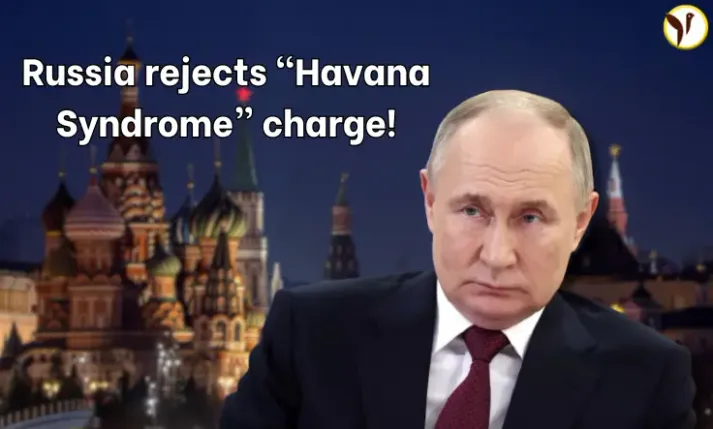The Kremlin has boldly dismissed a recent report suggesting Russian military intelligence involvement in the "Havana syndrome" that has affected American diplomats and intelligence officers globally. The report, put forward by Insider, an investigative media group with a focus on Russia based in Riga, Latvia, alleges the presence of members from a Russian military intelligence unit, known as 29155, at locations where reported health incidents involving U.S. personnel occurred.
According to the year-long investigation conducted by Insider, in collaboration with 60 Minutes and Germany's Der Spiegel, senior members of Unit 29155 were purportedly honored and promoted for their involvement in the development of "non-lethal acoustic weapons". Kremlin spokesman Dmitry Peskov, however, dismissed these claims during a press briefing, emphasizing that such accusations against Russia have persisted for years without substantial evidence to support them.
"This is not a new topic at all; for many years the topic of the so-called 'Havana Syndrome' has been exaggerated in the press, and from the very beginning it was linked to accusations against the Russian side," Peskov stated, underscoring the lack of convincing evidence behind the allegations.
The Pentagon, on the other hand, confirmed that a senior official experienced symptoms resembling those associated with the "Havana syndrome" during the NATO summit in Vilnius the previous year. Symptoms commonly reported include migraines, nausea, memory lapses, and dizziness. However, the Pentagon clarified that the afflicted official was not part of the U.S. Defense Secretary's delegation, redirecting inquiries regarding the broader issue to the intelligence community.
While the Office of the Director for National Intelligence acknowledged ongoing scrutiny of the so-called Anomalous Health Incidents in its 2024 Annual Threat Assessment, it noted that most agencies have concluded that it is "very unlikely a foreign adversary is responsible". Moreover, U.S. intelligence agencies assessed that the symptoms initially reported in Havana in 2016 "probably were the result of factors that did not involve a foreign adversary".
Contrary to previous assumptions, the Insider report suggested that incidents resembling the "Havana Syndrome" might have occurred earlier than 2016. Allegedly, similar attacks took place in Frankfurt, Germany, approximately two years prior when a U.S. government employee stationed at the consulate there was rendered unconscious by what was described as a potent energy beam.
In response to the growing concerns and cases related to the syndrome, the U.S. Congress passed the Havana Act in 2021, authorizing various U.S. government agencies, including the State Department and CIA, to provide compensation to affected staff and their families during assignments.
The situation remains complex, with conflicting assessments and ongoing investigations into the origins and nature of the "Havana syndrome." As the international community seeks answers, diplomatic tensions continue to simmer between the United States and Russia.







